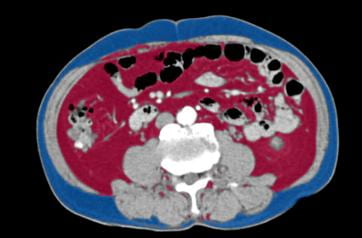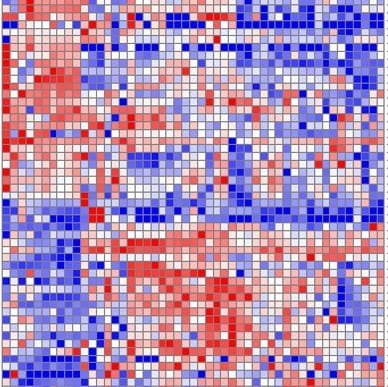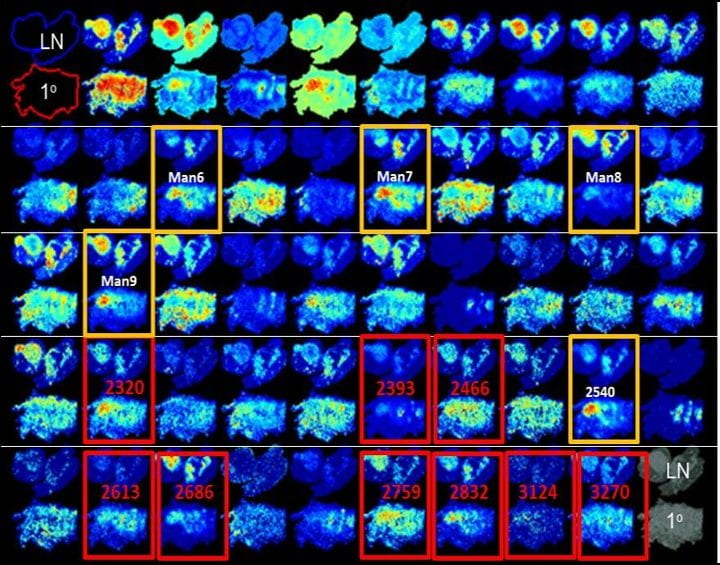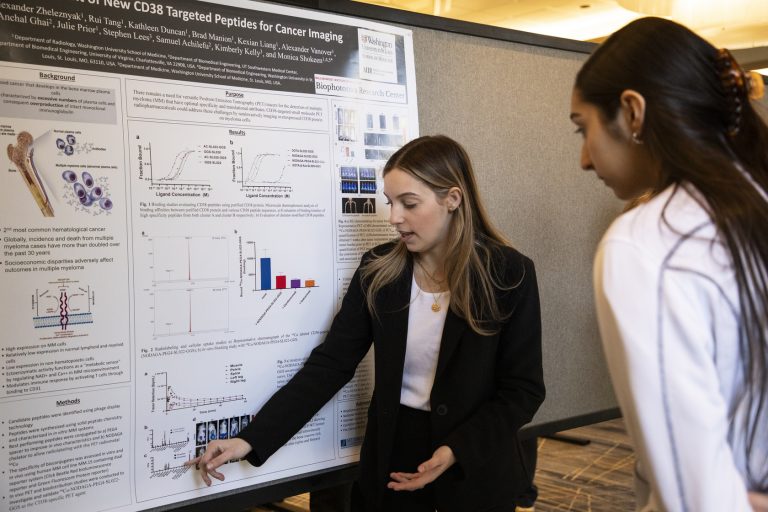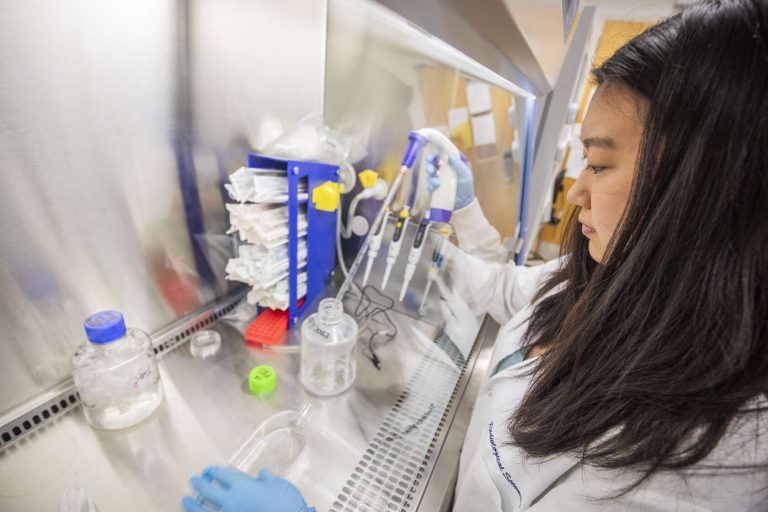Ippolito Lab
Projects
Sex Differences In Cancer Outcomes With Body Composition
The Ippolito Lab is investigating sex differences in body composition measured with CT as a way to predict outcomes in cancer patients. Not only do sex differences in nutrient consumption exist, but sex differences in fat deposition exist as well in both children and adults. Males have increased visceral fat, (the fat that encases the abdominal organs) that has been linked with metabolic syndrome, diabetes, and poor cancer outcomes. We discovered that although visceral fat is higher in males with renal cell (kidney) carcinoma, it selectively identified a subgroup of females with remarkably poor outcomes compared to everyone else.
These findings suggest the presence of a “third metabolic sex” consisting of males, females, and females with male-pattern metabolism when determining cancer patient outcomes. We are developing automated tools to measure body composition in cancer patients for applications in several different types of cancers.
Sex Differences in Cancer Cell Metabolism
Our lab is investigating sex differences in cellular metabolism as a way to explain the sex disparities seen in cancer. In cancers throughout the body, males have higher incidence and mortality compared to females. This is not only true in adults, but pre-pubertal children as well, suggesting a cell-intrinsic effect rather than solely being due to the effects of sex hormones. This is further underscored by the discovery that male embryos consume twice as much nutrients than females and grow at a faster rate.
Our lab is investigating the hypothesis that increased nutrient consumption and metabolism seen in males is recapitulated in cancer and underlies the sex disparities in outcomes. We are using a combination of mass spectrometry, NMR, metabolic PET and MR imaging, and genome engineering to identify sex-specific metabolic vulnerabilities, focusing on the invariably lethal brain tumor, glioblastoma.
Metabolic Markers for Lethal Prostate Cancer
Prostate cancer is a significant cause of mortality in American men. Unfortunately, prostate cancer is a heterogeneous disease that ranges the spectrum from indolent to aggressive. Currently, clinicians face the problem of not having adequate imaging and molecular biomarkers to predict outcomes and treatment options in men at initial diagnosis. The Ippolito Lab is attempting to develop a clinical workflow that incorporates molecular imaging on the systemic and tissue scales at initial diagnosis. We are investigating how the prostate cancer glycome (i.e. the sugar coating around the tumor cells) is different between indolent and lethal forms of prostate cancer.
Through funding from the Prostate Cancer Foundation and the Department of Defense, our lab is developing a PET imaging agent that can potentially identify the glycomes that are unique to lethal prostate cancer.
Clinical Molecular Imaging of Prostate Cancer
We are using novel diffusion imaging with MRI coupled with artificial intelligence (AI) to non-invasively predict the histology of prostate cancer in patients. The Ippolito Lab is using diffusion basis spectrum imaging (DBSI) coupled with artificial neural networks to predict the Gleason Grade Group of patients undergoing active surveillance for known prostate cancer. To improve our modeling of in vivo data, we are coupling high resolution ex vivo MR imaging and mass spectrometry multi-omic imaging to correlate MR imaging metrics with specific molecular identities that can be used to predict outcomes.
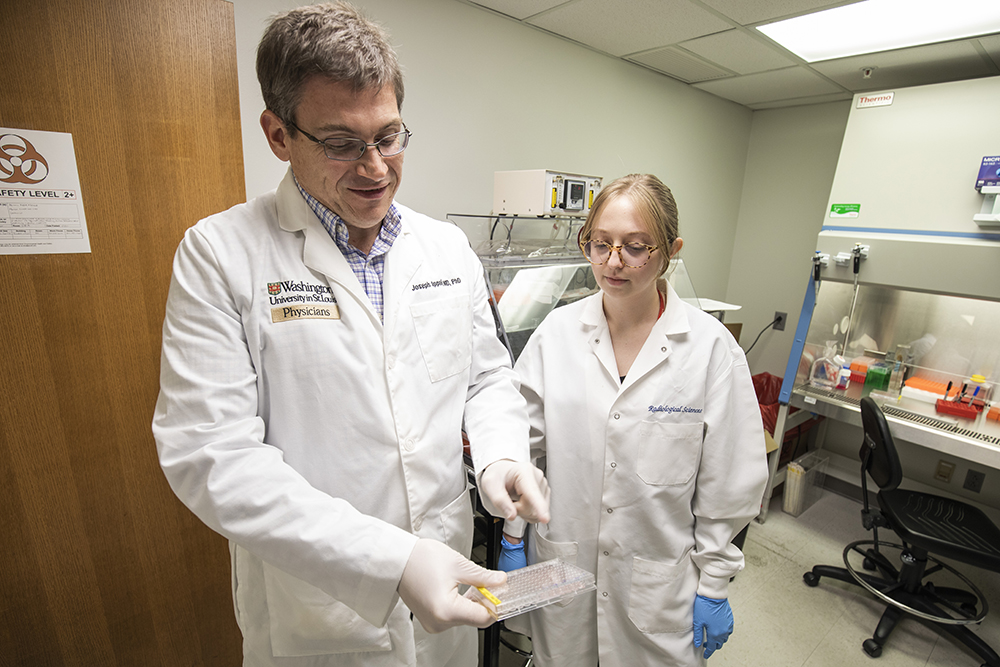
Our People
The lab, led by Joseph Ippolito, MD, PhD, consists of an interdisciplinary team of trainees and established scientists with experience that runs the gamut from laboratory biology and multi-omics to imaging and therapeutic trials.

